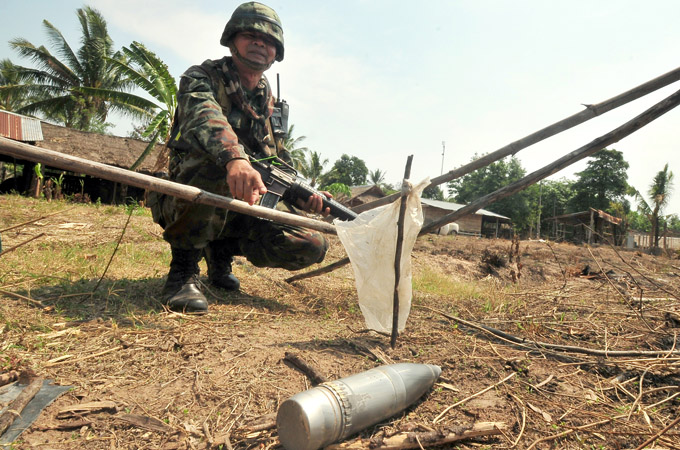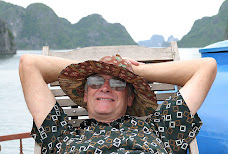| US to stockpile cluster bombs in Australia? | ||
Despite Australia having signed the convention against cluster munitions, a US base at Darwin may transport and stockpile cluster bomb munitions. By NAJ Talor
Brisbane, Australia: A US military "base" in Darwin, Australia (spun as a "rotational deployment" for China, I suspect), will necessitate foreign weapons systems and armaments being stockpiled, retained and transited on and in Australian territory. Although they are long-standing and committed allies, Australia and the United States hold different positions on many matters relating to both arms control and humanitarian law. One recent normative development where the US and Australia's views have diverged is the ban on cluster bombs, a weapon that has inside multiple - often hundreds - of small explosive sub-munitions or "bomblets" that are dispersed over an area the size of several football fields from either the air or ground. As a result, the final location of each bomblet is impossible to control for those deploying them, and so whom they maim or kill is both unknown and indiscriminate. Roughly 30 per cent of those deployed "fail" to explode on impact, and so the unexploded bomblets become de facto landmines. When the Convention on Cluster Munitions came into effect in August last year, the Gillard government was part of a chorus of NGOs and governments that saw "an end for all time" of the use of cluster munitions by prohibiting their production, use, stockpiling and transfer. At present, a bill sits with the senate that will criminalise Australian deployment of the weapon under domestic law, thereby ratifying the international convention. With the formation of a US military base in Darwin, Gillard will effectively make use of certain "loopholes" in the bill that arise from US' non-signatory status to the Convention, and obfuscation of negotiations that are currently taking place for an additional arms control measure this week. Best estimates are that the US forces presently have a quarter of the world's four billion cluster munitions in stockpiles across both its territory and existing overseas bases. The US last deployed cluster munitions during the Iraq War in 2003, despite the emerging norm. In my view, there's a fair degree of probability cluster munitions will be stockpiled in Darwin, since there are known plans for the US to base a number of B-52 bombers historically used to deploy cluster bombs. It is already known that nuclear weapons will not be permitted onto Australian territory, but a number of the US' naval fleet are nuclear-powered vessels, which will be allowed. . . As I wrote for Crikey in March this year, "No other signatory country in the world has expressly permitted such unfettered free access to its territories as this. It is unprecedented." If only I knew then what I do now about Darwin, especially given how little we are likely to ever know about what weapons the US keeps there. NAJ Taylor is a doctoral candidate in the School of Political Science and International Studies at the University of Queensland. A version of this article was first posted on his blog, This Blog Harms. Follow NAJ Taylor on Twitter: @najtaylor Link to this article: http://www.aljazeera.com/indepth/opinion/2011/11/2011111783832165197.html |
Saturday, November 19, 2011
Subscribe to:
Post Comments (Atom)


No comments:
Post a Comment